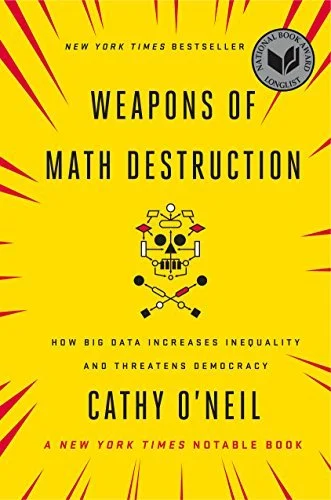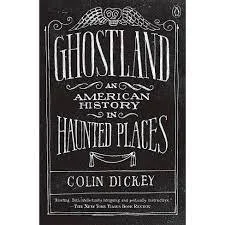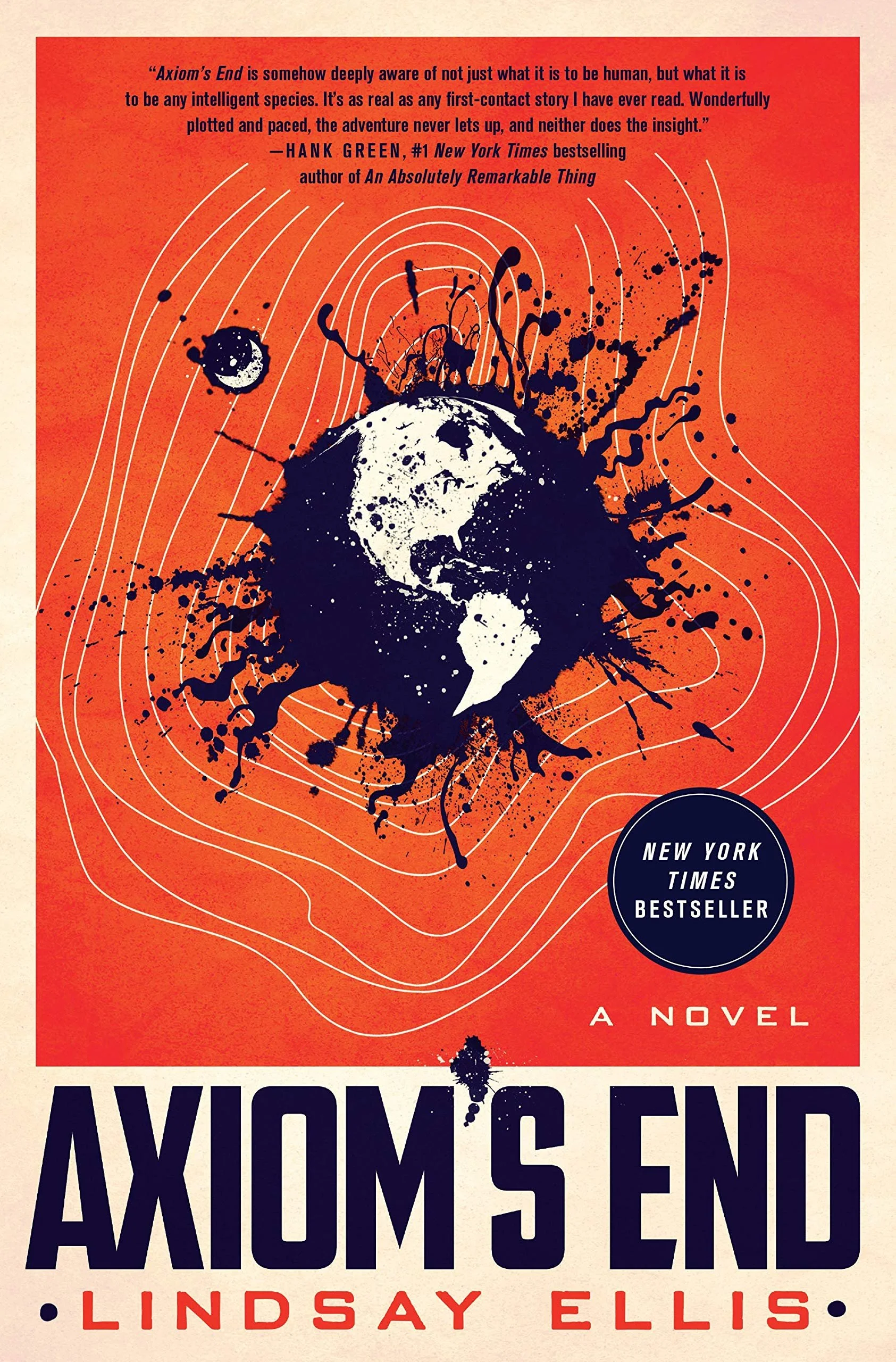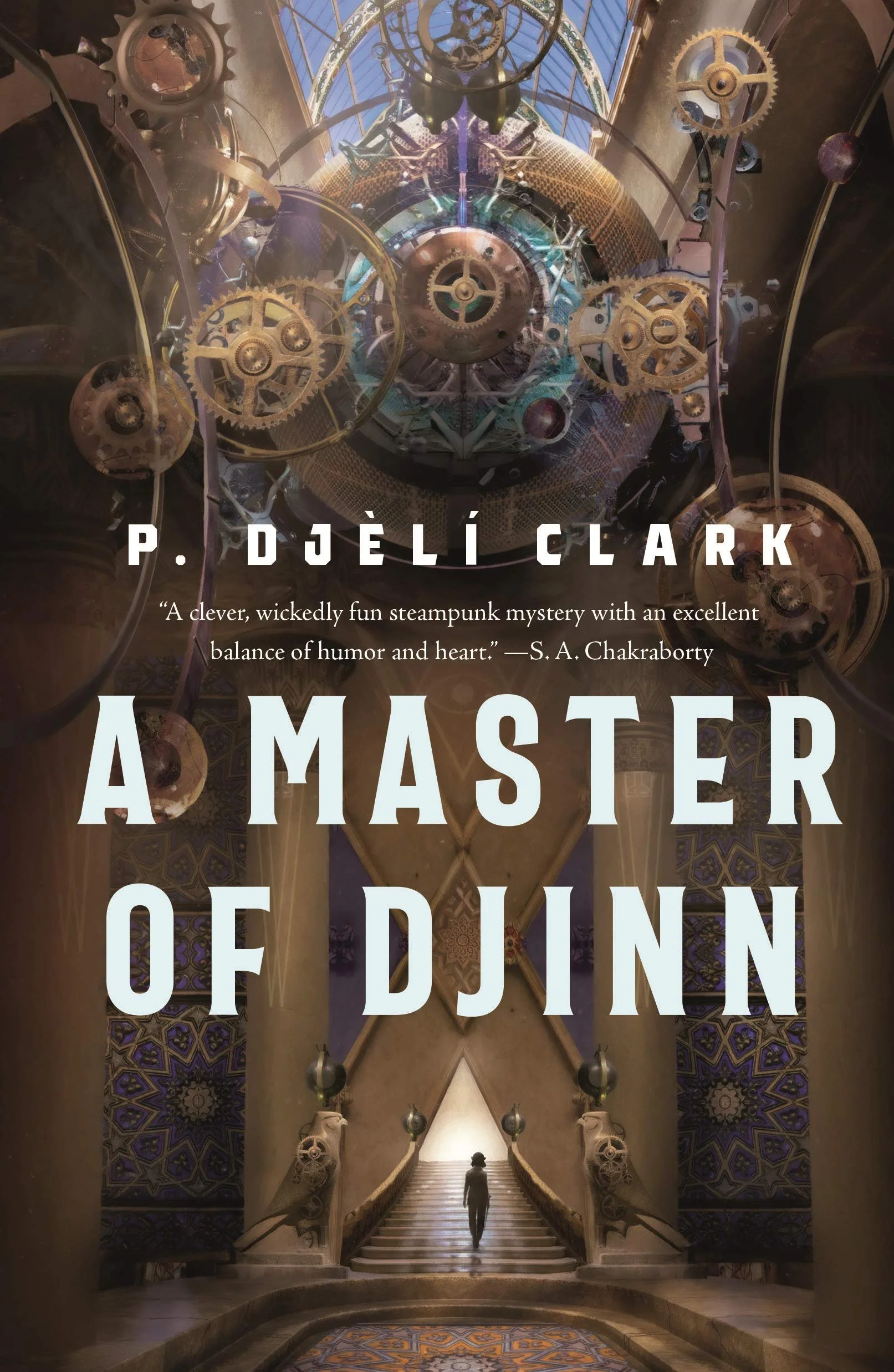Cameron's Book Reviews: 2022, part 3.
It’s hot, and we have affordable air conditioning in one room that doesn’t feature a place to put my computer or set up a television, so it’s the season to lie in a sweaty pile, stare at squiggles on paper, and try to hallucinate someplace more interesting to be.
Links go to bookshop where applicable.
※
Weapons of Math Destruction: How Big Data Increases Inequality and Threatens Democracy by Cathy O'Neil
O'Neil is a former data scientist, and left the profession to talk about how our information is being used and misused, largely due to the collapse of distinction between the qualitative and quantitative.
An example that she used that stuck with me, largely out of professional interest, was the effect of the U.S. News and World Report's college rankings, which were originally based on a survey filled out by school presidents (purely anecdotal data), which they then replaced with a battery of statistical tools to attempt to make the whole business objective. This meant that donations from alumni became a proxy for graduate satisfaction; high standardized test scores became a proxy for the quality of student coming in to the school; and a mountain of other similar proxies. Which then created a constellation of perverse incentives that led to schools becoming the shivering funding-addicts they are now, constantly chasing higher scores in a metric that is a proxy for a proxy for a proxy.
Like most things about the world outside your window, it's not a comforting book. However, if you want comfort, perhaps you should read fiction?
I especially appreciate how it looks like a title card from Over the Garden Wall.
Ghostland: An American History in Haunted Places by Colin Dickey
Reviewed by Edgar here. I previously reviewed a work by Dickey here.
Ghostland is another book by Colin Dickey in which he examines the supernatural not through the lens of "is this real," but through the lens of "why do people believe this or want to believe this?" Personally, I think this is a much more interesting question.
With the prior book of his that I reviewed, he examined cryptids and aliens, with this book he examined ghosts. It seems to be that the explanation for why people want to believe in ghosts is fairly simple, but the logic has evolved over the years, and it's interesting to see the seismic shifts in American culture regarding death (the end of the Civil War being a major watershed moment for that).
Dickey is a competent scholar, and an easy writer. I recommend picking up this book if the psychology and sociology surrounding ghosts and hauntings are at all of interest to you.
Axiom's End by Lindsay Ellis
So I finished playing XCOM2, and wanted something about an alien invasion -- it turns out not many of those actually get published. So I picked this up, it's a first contact story and it was...fine? The one stylistic thing that bugged me about the story was the insistence in the text that comparing something in a relatively "real" setting to a dragon meant anything. The aliens in the book are consistently compared to some chimera of locust, velociraptor, and dragon -- and it makes no sense.
This gripe wasn't enough to get me to stop reading the book, which was enjoyable enough, but I'm not sure I'll pick up the sequels -- perhaps if they come up on Libby, or appear on the shelf in the library. So, enjoyable, but it felt concluded enough.
Perhaps that's my idiosyncrasies as a reader -- it might work for you.
Paprika by Yasutaka Tsutsui, trans. Andrew Driver
A complicated novel taking place in a world where — essentially — the technology from Christopher Nolan’s Inception exists, and is used by therapists to help people (note: Paprika was written 17 years before Inception and has a solid explanation for why the technology even exists.) It’s a novel that involves Freudian psychology, office politics, conspiracies, and a dream-apocalypse that threatens to destroy the world.
It’s honestly great on paper. There are some things about it that I don’t find terribly easy to set aside, though: the author is very invested in traditional gender roles and the narrative itself is somewhat homophobic. Now, I understand that he comes from a different culture and has a different stance on the issue, but I think it’s a solid grounds to make critique from because of its adaptation. The book, itself, is quite good, if somewhat marred as I said. The adaptation is tighter, more imaginative, shows more love for people in general, and simply has a better grasp on its subject.
How could it not overshadow the original? It’s Satoshi Kon.
Kon and his team’s grasp of surrealism, and translation of it into then-contemporary Japanese life, is masterful. This lives rent free in my head now.
Work Won't Love You Back: How Devotion to Our Jobs Keeps Us Exploited, Exhausted, and Alone by Sarah Jaffe
The best of the nonfiction books I read during this stretch of time. Jaffe — a labor journalist — argues that the current labor regime tricks us into working harder because of the emphasis on what she calls the "labor of love myth.” She begins her examination with care work: the traditionally undervalued work of women and people of color to perform what the Marxists tend to call “social reproduction” (the socially necessary labor to keep people alive: cooking, cleaning, and so on).
She then examines how the dynamics of this care labor are generalized out, and how people are deceived — and deceive themselves — into loving the work so that they pour all of their time and energy into it, leaving them tapped out and unable to function.
In the course of the book, she proposes that the face of the working class isn’t the cisgender white man in a hard hat and a high-visibility vest (that man, and many people like him, do still exist, of course), but instead the young black woman or woman of color who is working an unpaid internship in the hopes of receiving a job (and who, meanwhile, has no protection, because unpaid interns are not employees).
It’s a brilliant, infuriating book. Highly recommended.
A Master of Djinn by P. Djèlí Clark
Reviewed by Edgar here.
After reading Ring Shout, I wanted more -- so I followed Edgar's recommendation and tracked this down. Set in an alternate history where magic has returned, in an Egypt that threw off the chains of colonial oppression.
I overlooked my rule about copization to read this story of Fatma el-Sha'arawi, an agent for the ministry of Alchemy, Enchantments, and Supernatural Entities, as she hunts for whoever murdered a prominent English nobleman and shipping magnate. The English man, it turns out, was the head of a sort of off-brand Rosicrucian group, dedicated to the Sudanese mystic al-Jahiz, who is the one who caused magic to return in the first place -- and who, Fatma realizes, may just be the one who returned from wherever he vanished to in order to commit the very murder she is investigating.
It's a good book without a wasted page in the whole damn thing. Clark continues to impress.
The Sleeping Dragon by Miyuki Miyabe, trans. Deborah Stuhr Iwabuchi (link goes to Abe books — no Bookshop.org entries.)
A competent little thriller published in 1991 by Miyuki Miyabe (who either is, or shares a name with, a currently-active Japanese YA writer), and translated for English publication in 2009. Follows journalist Shogo Kosaka as he investigates several very loosely-linked mysteries. In the first one, he is driving home to Tokyo as a typhoon hits, and picks up a high school student who had been riding his bicycle, concluding that the young man would be in danger if he didn’t. The young man (Shinji Inamura) later claims to be a psychic, and produces enough evidence that the skeptical Kosaka doesn’t dismiss it out of hand.
As they head back toward their respective homes, they find evidence of a horrible accident: an open manhole cover and a child’s umbrella. This quickly spirals out into a police investigation, which the two of them linger on the fringes of.
This is simply the first of three interlinked mysteries featuring these same characters, all collected in this one volume, and hinging on the veracity of Inamura’s claims of psychic powers. All of the mysteries are competently handled, but the cultural logic in play takes some work for an American to parse: for example, at the end of that first mystery, Kosaka and Inamura confront the people responsible for the manhole cover being open — who caused the death of a young child as a result of their actions — and explain they know what happened. In the logic presented, which feels unusual from an American context: first, the people who opened the manhole cover, not the parents of the child who let him out in a typhoon, are responsible for the death; second, simply confronting the wrongdoers is treated as if it should be enough to make them turn themselves in to the police.
As a reminder: literature is no substitute for traveling the world, but it can serve as a means to experience the world from a different perspective. On its own, The Sleeping Dragon is a competent enough book: perhaps a B-, but I enjoyed it for the thought experiment it allowed me to conduct, and the awareness that apportioning guilt is not exactly the same, the world over.
Tales from the Loop has a pastoral nostalgia to it, but…
Tales From The Loop and Things from the Flood by Simon Stålenhag
A pair of art books produced by a Swedish artist, adapted to a tabletop roleplaying game by Free League and a disappointing Amazon original series that didn't have the sense of fun of Stranger Things or the character and high-flying weirdness of Twin Peaks.
Neither of the adaptations are terribly faithful -- the former out of pragmatism and the latter out of cowardice. Amazon even shifts the narrative from Sweden to — not the in-universe equivalent outside Las Vegas — somewhere in the eastern midwest (Ohio, I think?) which could have worked, if it had bothered to ground things in the setting that it supposedly used. Instead, everything was — as I critique a book later on in this slate of reviews — reduced down to the Oedipal triangle. The loop shrank from a particle accelerator to the perimeter of a dinner table.
Things from the Flood is full of dread.
In Stålenhag's 1980s, giant tanker ships glide through the sky, semi-autonomous robots are part of the landscape, and children threaten artificially intelligent teddy bears with firearms for refusing to talk.
Stålenhag observes his world very well -- it's a world not just of superscience and robots suffering from "machine cancer", but with a sense of history and the presence of blue-collar people. This is a science-fiction setting in which someone refills the vending machines
For the record, it would be best to think of it as something like Stranger Things, but more like a much more grounded version of The Venture Brothers.
It’s somewhat unclear to me which character this is supposed to be. She doesn’t match any of the protagonists of Clark’s novella.
The Black God's Drums by P. Djèlí Clark
I am generally resistant to reading multiple works by the same author in the same round of reviews and here I've done it twice (though I would argue that the Stålenhag books don't really count). I've really enjoyed Clark's work.
Much like Master of Djinn, Black God's Drums is an example of a postcolonial, alternate history/fantasy story. Instead of focusing on the Islamic world in the early 20th century, it focuses on a free New Orleans, caught in a tug of war between the Union, the Confederacy, and a new superpower in the western hemisphere: Haiti, wielding superscience and honest-to-god magic.
Reading this book allowed me to see the strings a bit with regard to Clark’s interaction with his publisher: the novellas are, to a certain extent, auditions for extended works — the author trying on a world, and the publisher reporting back what works. This is, honestly, perfectly fine with me: I would love to see more experimentation like this, even if (to a certain extent), there needn’t be any real separation between these worlds at all.
Maxwell's Demon by Stephen Hall
Full disclosure: I loved Hall’s prior novel, The Raw Shark Texts, and I’m bringing that up primarily because I can’t help but read Maxwell’s Demon in the context of that. There are elements of signature style between them: Hall experiments with typography in a fashion very similar to Mark Z. Danielewski, though he tends to be more reserved in his approach, and somewhat more conservative in his plot lines.
It’s a great cover.
This type of writing — the kind practiced by Hall and Danielewski — is called “Ergodic Fiction,” and it was the subject of my master’s thesis. The Raw Shark Texts was on my reading list, alongside Danielewski’s Only Revolutions, Hopscotch by Julio Cortazar, and Ficciones by Jorge Luis Borges (which was there more because I wanted an excuse to read Borges than because it fit). In short, I love The Raw Shark Texts.
I bring this up because I didn’t love Maxwell’s Demon.
The book started solidly enough: struggling writer (remember: write what you know, and most writers are writers) Thomas Quinn receives a mysterious answering machine (or, in British, “answerphone”) message from Stanley Quinn, his famous author of a dead father: “Why ask an angel in Bethlehem” (later revised to “Why an ox and an angel in Bethlehem?”). This sits uncomfortably alongside a missive from Andrew Black — worldwide best-selling novelist, former research assistant and spiritual son to Stanley Quinn, and bizarre hermit — asking him if he knew what a perfectly smooth black sphere is.
Alright, I’m interested.
What follows is about 150 pages, essentially, of the best damn hypothetical rewriting of Flann O’Brien’s The Third Policeman if it had been done by Carlos Ruiz Zafón. Unfortunately, by this point, there are somewhat more than 150 pages left.
The conclusion that Hall takes the narrative through is unsatisfying: it chisels away the strangeness and reduces everything down to the Oedipal triangle of mother/father/child, apparently out of a sense that narratives should end in an improved version of where they begin, following the arc of the Campbellian monomyth.
This is, quite clearly, not the case.
Read Maxwell’s Demon if you want. I’m always going to suggest that people should pick up The Raw Shark Texts instead.
Read this, not that.
※
If you enjoyed reading this, consider following our writing staff on Bluesky, where you can find Cameron and Edgar. Just in case you didn’t know, we also have a Facebook fan page, which you can follow if you’d like regular updates and a bookshop where you can buy the books we review and reference (while supporting a coalition of local bookshops all over the United States.) We are also restarting our Tumblr, which you can follow here.












